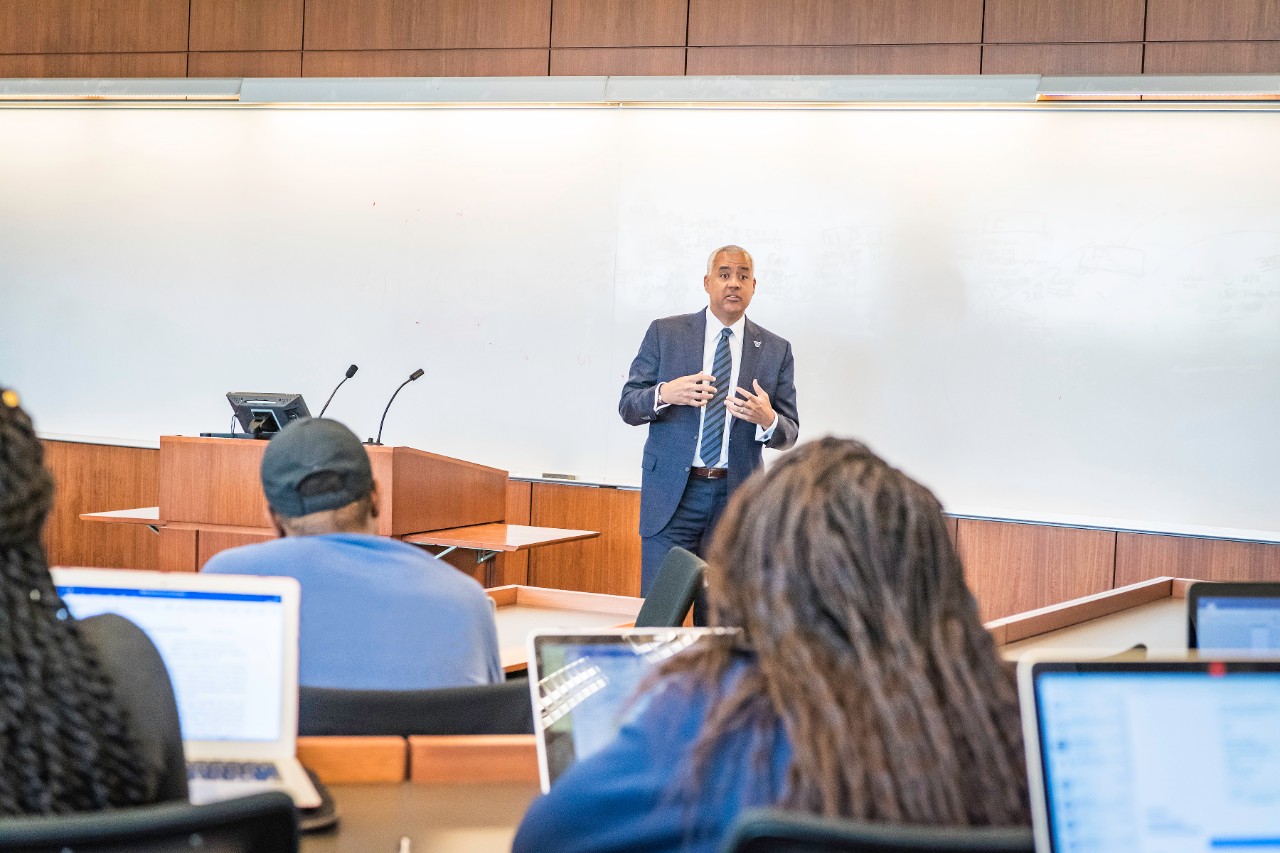Society, Race and the Law's Impact

Dean Alexander teaches Race and the Law
At Villanova Law, students experience a legal education with values at its core and an Augustinian Catholic intellectual tradition that challenges them to seek truth in an open, respectful and supportive environment. So, when social justice-minded students wanted to explore how laws impact marginalized groups when it comes to things like access to health care and voting, buying or renting a house, employment discrimination and many other societal issues, Villanova Law created a course to do just that.
Taught for the first time during the spring 2018 semester, Race and the Law was created by Caitlin Barry, Assistant Professor of Law, after past students expressed a desire for a class tackling the subject. An innovative seminar, the course helps students to develop a better understanding of the role of law in its social context and to identify how the law may be used to institutionalize, or challenge, racial injustice.
“Race and the Law was designed to engage faculty and students in reflection on the role of the law in its social context and consider the limits of the law as a tool for change,” said Barry. “My goal is for students to gain confidence in their ability to identify and articulate the ways in which the law contributes to structural racism and consider how those lessons impact their own professional identity as future lawyers.”
The course is team-taught by various law faculty who have legal expertise in different topic areas, including Mark Alexander, The Arthur J. Kania Dean. Each week, students and faculty examine a different substantive topic, including environmental law, health care, criminal justice, employment discrimination, voting rights and housing. Assigned readings that highlight racial dynamics related to the selected topic area for the week inspire thought-provoking class discussions and challenge students to look at how racism and the law are connected.
“Race and the Law is like no other class I have taken at Villanova,” said Jake Etienne ’20. “It builds upon a topic, race, which is not often at the forefront of law classes, and brings it to light in a unique manner. By having a rotating cast of professors teach their focus of law through the lens of race, it allows students to get an in-depth look at a variety of practice areas and the ripple effects laws can have on our society in so many different ways.”

